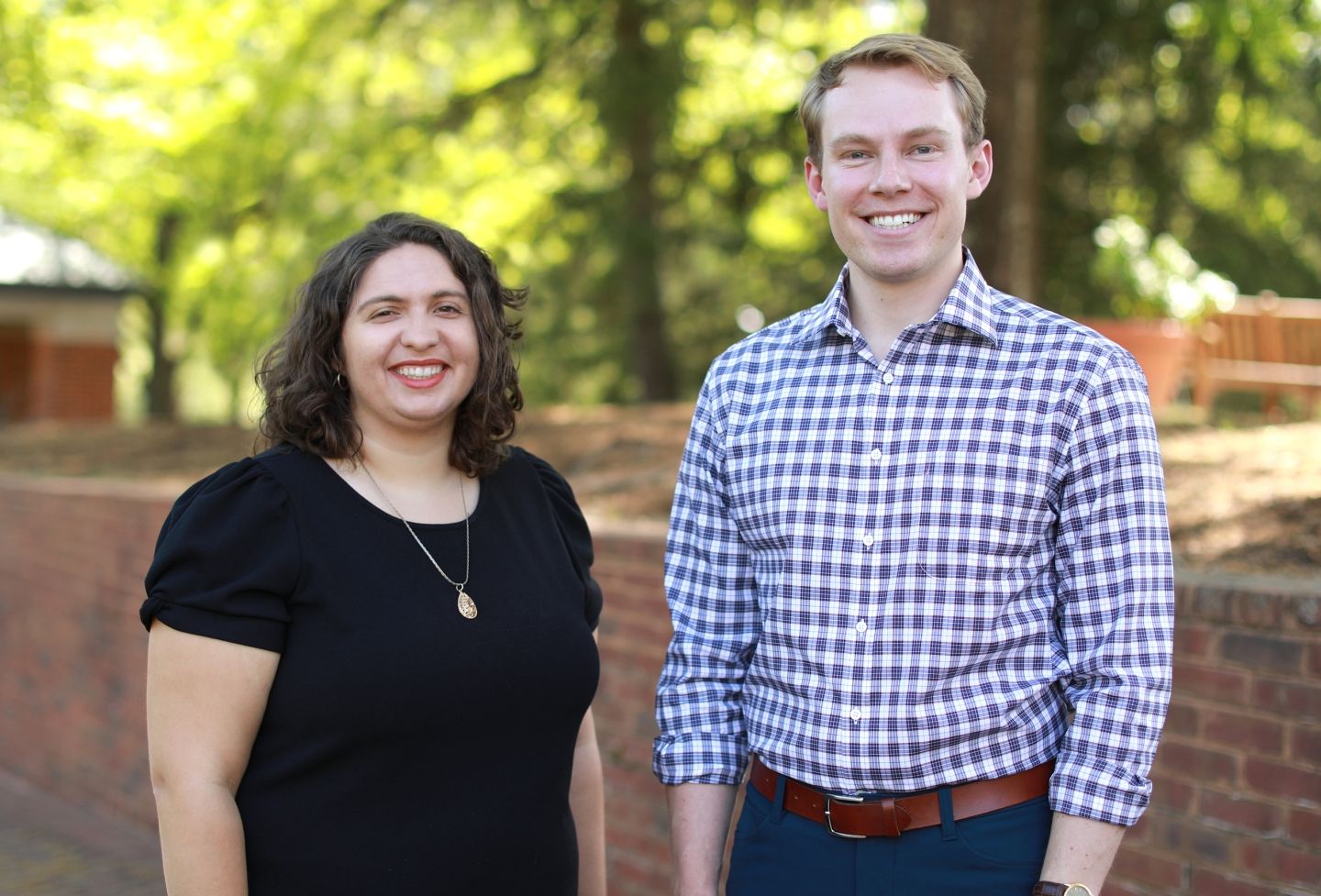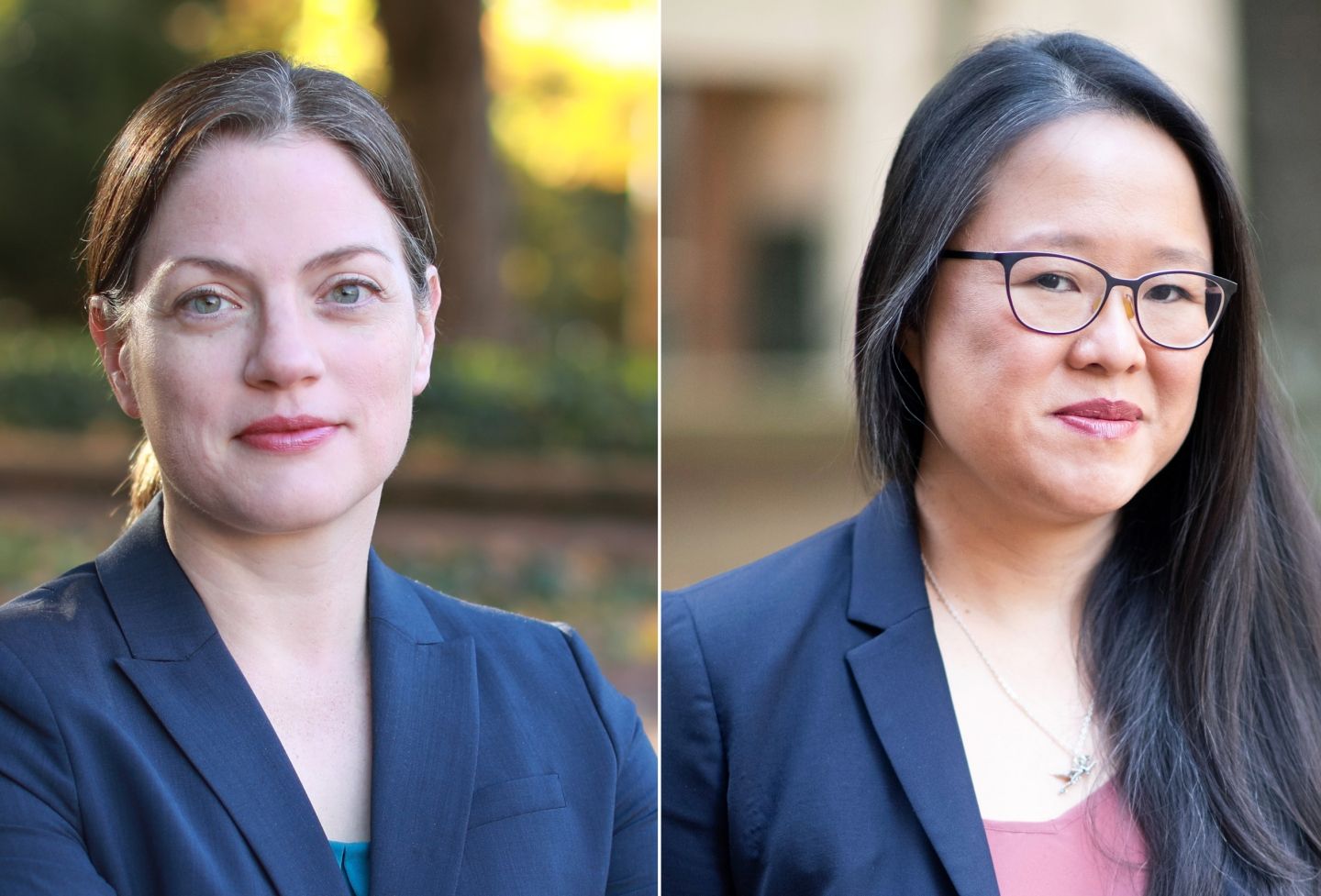The University of Virginia School of Law's First Amendment Clinic has filed a federal lawsuit seeking the release of a sealed non-prosecution agreement between the U.S. Attorney's Office for the Southern District of Texas and a Houston-based company that employed undocumented immigrants.
The clinic filed the lawsuit against the U.S. Department of Justice on behalf of Jonathan Ashley, a business and empirical research librarian at the UVA Law Library who for several years has been compiling a database of non-prosecution agreements in partnership with Professor Brandon Garrett.
"Clearly the decision of the government not to pursue criminal charges against admitted wrongdoers is something that the public has a right to know [about]," said Josh Wheeler, co-director of the First Amendment Clinic.
Ashley and Garrett's collection includes nearly 150 non-prosecution agreements, which are struck when the federal government decides not to pursue criminal charges against corporations that have admitted wrongdoing, ranging from fraud to bribery of foreign officials. Included among the agreements in the database are those involving companies such as Boeing Co., Google Inc., GlaxoSmithKline, Halliburton Co. and JPMorgan Chase & Co.
"We have reached out to prosecutors to obtain deferred and non-prosecution agreements that we have been unable to locate," Garrett said. "Typically, these corporate prosecutions are announced publicly, because the resolutions of such cases are of real public importance. However, there are about two dozen such agreements that we have identified which we have been unable to obtain."
The lawsuit is the first time the First Amendment Clinic taken action under the Freedom of Information Act to seek access to documents, said Wheeler, who is also executive director of the Thomas Jefferson Center for the Protection of Free Expression. The center runs the clinic in conjunction with the Washington, D.C., office of the law firm Baker Hostetler.
"Even though this isn't strictly a First Amendment cause of action, in principle it is very similar to the First Amendment right of access to judicial records involving matters of public concern," he said.
In this case, the clinic is seeking the release of the non-prosecution agreement involving ABC Professional Trees Services Inc. that was announced in May 2012.
According to a Justice Department press release at the time, the company agreed to "adhere to revised immigration compliance procedures and to pay $2 million as forfeited funds to the Department of Homeland Security related to revenue derived from the employment of illegal aliens."
The Department of Homeland Security began investigating the company in early 2008 following complaints that a significant portion of the company's employees were undocumented, according to the news release. In 2009, the department found that roughly 30 percent of the company's workers were undocumented aliens.
Following the investigation, the company "remediated its workforce and imposed significant immigration compliance measures," such as using the government's E-verify program, which allows employers to check new workers' employment eligibility, as well as also terminating the jobs of hundreds of undocumented workers, according to the news release.
Third-year law student Kyle Mathews was part of a team of seven clinic students who contributed to the lawsuit.
Mathews said it struck him as odd that the government has so far refused to make public its agreement not to prosecute ABC Professional Trees Services.
"They've claimed that if they release their agreement, it would interfere with enforcement proceedings and law enforcement investigations and prosecutions — and it's just not clear how that would apply to with this particular company or this particular agreement," he said. "Plenty of other non-prosecution agreements are open to the public, including ones involving immigration and even more sensitive practices."
Third-year law student and clinic participant Paula Salamoun helped draft the complaint, which was filed in the U.S. District Court for the District of Columbia.
The lawsuit came, she said, after Ashley's request for the document was rejected by the Justice Department's administrative appeals process.
There is a compelling public interest in allowing the public to see the terms of agreements with companies that have admitted wrongdoing, but that the government declines to prosecute, she said.
"Non-prosecution agreements are when the government chooses not to pursue charges toward an entity so I think this is an area where there are high stakes," she said. "I think the public should know why the government would not bring charges toward a wrongdoer."
As a researcher, Garrett said the information that can be learned from corporate non-prosecution agreements is both "useful and fascinating."
He is currently writing a book, tentatively titled "Too Big to Jail: How Prosecutors Target Corporations," which draws on data collected from corporate prosecution agreements, and he has written a number of law review articles on the subject.
Academics, private practitioners, prosecutors, lawmakers and members of the general public have all told Ashley and Garrett that they found the UVA Law Library collection to be a valuable resource, Ashley said.
"The database began when Professor Garrett and I realized that nobody had collected these in one accessible central location, not even the DOJ," he said. "Personally, I see these kinds of projects as part of both collection development and faculty support that are in-line with the mission of academic law libraries and we have similar projects underway."
Garrett added that they want the library's collection of information about federal organizational prosecutions to be as complete and useful as possible.
"Perhaps this FOIA effort by the First Amendment Clinic will help," he said.
In addition to Mathews and Salamoun, the other clinic students who worked on the case were John Castle, Madeline Gibson, Drew Hollander, Donald Reinhard and Alexandra Robinson.
Founded in 1819, the University of Virginia School of Law is the second-oldest continuously operating law school in the nation. Consistently ranked among the top law schools, Virginia is a world-renowned training ground for distinguished lawyers and public servants, instilling in them a commitment to leadership, integrity and community service.


